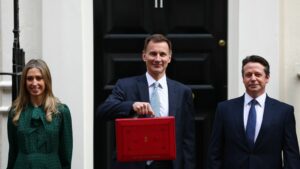At Jump (Local Green Points) we have come across a number of different recycling collection systems in operation while working with local authority clients across the country. To understand the extent of variation between the collection systems in place we have been researching the ways in which dry recycling is collected across the 33 London Boroughs. All data has been taken from the WRAP Local Authority Waste and Recycling Portal from 2014-2015. Across 33 Boroughs we’ve seen that there are 9 different combinations of containers used to collect dry recyclables for kerbside properties alone – varying from boxes, wheeled bins, reusable and non-reusable sacks of different colours, communal waste bins and a combination of the above. Recycling collection systems are further divided into co-mingled (the use of one container for mixed recycling), two-stream (the use of two separate containers for recycling) and multi-stream (the use of a separate container for each recyclable material). For both flats and kerbside properties it was found that the majority of Boroughs offer co-mingled collections, leaving 25% of houses and flats in London using either two-stream or multi-stream systems.
The combination of materials accepted by these dry recycling collections is varied across the 33 London Boroughs. While all services will accept mixed cans, card, plastic bottles and paper, others will also accept glass, aerosols, foil, mixed plastics, paper, batteries, textiles or composites.
PLEASE CLICK HERE FOR A SUMMARY OF COLLECTION REGIMES ACROSS THE LONDON BOROUGHS.
The collection frequency of dry recycling also varies greatly between the Boroughs and property type, ranging from fortnightly to more than weekly collections and a combination across the Borough.
Taking into account the container type and colour, the materials accepted, property type, whether materials are mixed or separated and the frequency of collections, practically all London Boroughs are found to offer a different collection system for dry recycling. With over 30 different collection regimes in London alone, communicating with residents about how to use their local collection systems is one of the biggest challenges to recycling correctly. As we have learnt through conducting door-to-door recycling campaigns and running our incentive programmes, a high proportion of residents in rented accommodation and transient populations in London act as a major barrier to understanding recycling systems. One way to tackle this in the short term is using incentive schemes to educate residents on how to use their recycling services. Looking to the longer term, WRAP are working alongside DEFRA officials and senior recycling officials on the ‘Harmonisation and Consistency Working Group’ to consider ways in which local authorities can harmonise collection systems. A publication outlining a ‘vision for greater consistency in collections’, likely to include a standardised set of materials for recycling and the containers used for recycling, is expected from July. We’ll continue to research the recycling systems in London so check back to the Jump (Local Green Points) blog to find out more about garden waste and food waste recycling.





